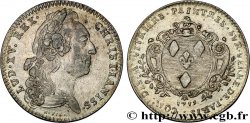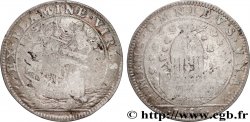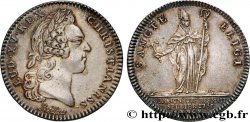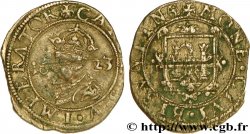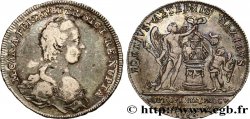fjt_058635 - CORPORATIONS Jeton AR 30, Huissiers à cheval 1761
Not available.
Item sold on our e-shop
Price : 144.83 €
Item sold on our e-shop
Price : 144.83 €
Type : Jeton AR 30, Huissiers à cheval
Date: 1761
Metal : silver
Diameter : 30 mm
Orientation dies : 6 h.
Weight : 8,33 g.
Edge : cannelée
Rarity : R1
Catalogue references :
Obverse
Obverse legend : LUD. XVI. REX - CHRISTIANISS..
Obverse description : Buste à gauche de Louis XVI, au-dessous signature J. P. DROZ F..
Obverse translation : (Louis XVI, roi très chrétien).
Reverse
Reverse legend : SOLIS INFENSUS INIQUIS.
Reverse description : Aigle éployé sur le foudre de Jupiter, sortant d’un nuage, au-dessous le globe inscrit GALLIA ; à l'exergue en deux lignes : HUISSIERS A CHEVAL/ AU CHlet 1761.
Commentary
Les huissiers à cheval du Châtelet pouvaient résider en n’importe quel endroit du royaume, officier partout et procéder aux prises et ventes de meubles là où il n’y avait pas d’huissiers-priseurs.
Cette émission date des années 1776 ou 1777 au vu du buste.
Cette émission date des années 1776 ou 1777 au vu du buste.








 Report a mistake
Report a mistake Print the page
Print the page Share my selection
Share my selection Ask a question
Ask a question Consign / sell
Consign / sell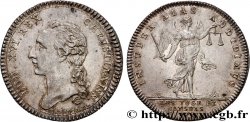
 Full data
Full data